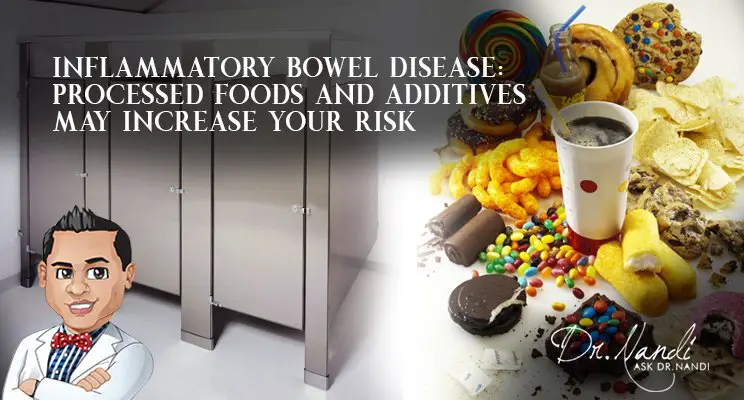Picture a developing baby’s brain as a vast construction site. Blueprints genes set the basic layout, but fleets of tiny subcontractors arrive from an unexpected address: the gut. Trillions of bacteria, exchanging chemical messages with the immune system, whisper timing cues that may shape how social circuits are wired long before a first cry.
Autism, long chalked up to genetics and a vague “something in the environment,” now has a new suspect on the roster. Mouse experiments show that dialing up a single immune molecule, IL-17a, under the influence of specific maternal gut microbes can flip offspring into autistic-like behavior. Large human cohorts echo the pattern: babies missing key microbial allies or exposed to early antibiotics show altered developmental trajectories years before any diagnosis.
Genes still matter a lot but the gut’s microbial chatter appears to be one of the earliest architects in the brain’s design meeting. That revelation forces us to rethink everyday choices, from managing infections during pregnancy to selecting the first foods an infant tastes. The sections that follow unpack how this microbial-immune crosstalk unfolds, which bacteria and metabolites matter most, and why “fixing the gut” is not a magic bullet but a promising piece of a much bigger puzzle.
How the Gut and Brain Are Connected Early in Life
The idea that gut bacteria could shape brain development might sound far-fetched at first but the evidence is quickly stacking up. The gut and brain are in constant communication through neural, immune, and hormonal pathways, a system known as the gut-brain axis. What’s especially critical is that this communication begins very early possibly even before birth and plays a role in how the nervous system matures.
One of the most compelling animal studies comes from researchers at the University of Virginia. They found that the mother’s gut microbiota, not just the baby‘s can influence brain development through immune signaling. In mice, the presence of a molecule called IL-17a, which is triggered by certain gut bacteria, led to autism-like behaviors in the offspring. These behaviors included reduced social interaction and repetitive activity. When researchers suppressed IL-17a during pregnancy, those same behaviors disappeared even if the mother still carried inflammation-prone gut bacteria. That’s a powerful demonstration that early immune activity, driven by gut microbes, can have long-lasting effects on brain wiring.

But this isn’t just a rodent story. A large, long-term study of over 16,000 Swedish children found that differences in gut flora could be detected as early as the first year of life in those who would later be diagnosed with autism, ADHD, or other neurodevelopmental conditions. Stool samples from one-year-olds and even umbilical cord blood at birth showed distinct biological markers altered levels of certain fatty acids, missing beneficial microbes like Coprococcus, and elevated exposure to environmental toxins. These changes were seen well before any clinical symptoms appeared.
One factor that stood out was early antibiotic use. Babies who received multiple courses of antibiotics in their first year had an increased risk of later neurodevelopmental diagnoses. The concern isn’t the infection itself but how antibiotics may disrupt the developing gut ecosystem, wiping out beneficial bacteria during a critical window of immune and brain development.
In short, gut bacteria don’t just help digest food they interact with the immune system, influence inflammation, and may even affect which brain pathways are strengthened or weakened in early life. And the earlier this gut-brain conversation starts, the more impact it may have.
What Specific Gut Bacteria Might Be Doing
Not all gut bacteria are created equal some appear to do far more than just aid digestion. In children with autism, several studies have identified measurable differences in specific types of gut bacteria compared to typically developing peers. These aren’t just random shifts in microbial population. Some of these bacteria are known to influence brain chemistry, immune signaling, and even behavior. The term for these microbe strains with psychological effects? Psychobiotics.
Species like Lactobacillus plantarum, Lactobacillus reuteri, Bifidobacterium longum, and Coprococcus have been shown in animal studies to affect neurotransmitter production, reduce inflammation, and influence behaviors related to anxiety, social interaction, and learning. In mouse models, increasing levels of Bifidobacterium longum has led to reduced stress and improved brain function. Likewise, Lactobacillus reuteri supplementation has been associated with improved social behavior and decreased repetitive actions.
Human data is more cautious but still suggestive. A recent study comparing children with ASD to typically developing children found that those with autism had significantly lower levels of Lactobacillus plantarum and Lactobacillus reuteri. Correlation heatmaps also showed that higher levels of Bifidobacterium and Lactobacillus were linked to better physical health, improved sociability, and fewer sensory impairments. However, it’s important to underline that these are correlations, not proof of causation. The study did not find a statistically significant relationship between bacterial abundance and autism severity, which suggests that the connection is complex and likely influenced by many other variables.
Another layer comes from research that transplanted gut bacteria from children with autism into germ-free mice. These mice, raised with no prior gut microbes, developed behaviors similar to autism: less interest in social interaction and more repetitive movements. The transplanted bacteria also altered levels of key metabolites like taurine and 5-aminovaleric acid (5AV) both of which affect how neurons communicate. When those same compounds were supplemented in mice, autistic-like behaviors decreased. This raises the possibility that it’s not just the bacteria themselves, but the chemical byproducts they produce that influence brain function.
Still, there are major unknowns. We don’t yet know which microbial changes are causes versus consequences of ASD. Children with autism often have restricted diets or gastrointestinal symptoms, both of which can shape the gut microbiome independently of brain development. And while probiotic therapy is being explored, there’s no consensus on which strains, if any, are clinically effective or how they might need to be personalized.
What we do know is that certain bacteria are consistently found at lower levels in children with autism and that these bacteria appear to interact with the brain through immune and metabolic channels. Whether these changes can be meaningfully reversed or whether doing so would improve symptoms remains an open question.

Can Gut Bacteria Cause Autism? What the Evidence Says So Far
The blunt answer is we don’t know yet. What we do have is a growing stack of studies that cross the line from “interesting association” to “possible mechanism,” at least in animals. In several mouse experiments, scientists have manipulated gut microbes and then watched autism-like behaviors appear or disappear almost on cue. Examples:
- Fecal transplants: Germ-free mice that received stool from children with autism became less social and more repetitive, while those given stool from neurotypical children did not. Swap the microbes, swap the behavior.
- Immune-mediated models: Pregnant mice whose gut bacteria primed a strong IL-17a response gave birth to pups with social deficits. Blocking IL-17a during gestation prevented those behaviors, even though the mothers still carried inflammation-prone microbes.
- Metabolite rescue: In mice already prone to autism-like traits, supplementing two microbe-derived compounds taurine and 5-aminovaleric acid restored more typical social interaction and reduced repetitive movements.
These interventions satisfy two key criteria of causation in basic science: manipulation (changing the microbes changes behavior) and reversibility (correcting a microbial deficit improves behavior). That is stronger than mere correlation.
Where the Evidence Stops Short
- Species gap – Mouse brains are useful test beds, but human neurodevelopment is far more complex. A treatment that normalizes mouse behavior might not touch the core features of autism in people.
- Genetic load – Twin and family studies still attribute most autism risk to genetics. Gut microbes might modulate that risk, but they don’t rewrite the DNA blueprint.
- Reverse causality – Children with autism often have restricted diets, gastrointestinal issues, and higher antibiotic exposure each of which can reshape gut flora. It’s hard to tease apart what came first.
- Lack of controlled human trials – No large, placebo-controlled study has yet shown that altering gut bacteria through probiotics, diet, or fecal transplant changes core autism symptoms in a durable way.
A Working Model
Think of gut microbes as amplifiers rather than primary composers. Genes lay down the melody; environmental factors, including microbes, can turn the volume up or down on certain neural pathways. In susceptible individuals, an early microbial imbalance may tilt immune signaling or neurotransmitter availability just enough to influence how social circuits mature. That doesn’t make bacteria “the cause” but positions them as a biologically plausible contributor—one that might be easier to modify than our genes.
The Role of Antibiotics, Breastfeeding, and Early Lifestyle Factors
If gut microbes influence brain development, then anything that disrupts or protects that early microbial environment becomes relevant. And in the first year of life, a few common factors stand out antibiotic use, feeding practices, and environmental exposures. These may not directly cause autism, but they appear to shape the gut in ways that could affect developmental risk.
Antibiotics: Double-Edged Sword in Infancy
Antibiotics are lifesaving, but in infants, they can wipe out beneficial gut bacteria during a time when the microbiome is still forming. Multiple studies now link early antibiotic exposure especially in the first year of life to a higher risk of later neurodevelopmental diagnoses, including autism and ADHD.
A prospective study following over 16,000 Swedish children found that infants who received repeated antibiotic treatments were more likely to be diagnosed with autism spectrum disorder or related conditions years later. The likely mechanism? Antibiotics disturb the balance of gut flora, reducing protective strains like Coprococcus and Akkermansia muciniphila. These bacteria are involved in producing neurotransmitter precursors and anti-inflammatory compounds that may support healthy brain development. Their absence has been linked to both gut inflammation and altered brain signaling pathways in early life.
Importantly, it’s not the infection itself that raises the risk it’s the collateral damage to the microbiome during treatment.
Breastfeeding: Microbial and Metabolic Protection
On the other hand, breastfeeding appears to have a protective effect. Breast milk contains not just nutrients but also prebiotics, beneficial bacteria, and immune-modulating compounds that help shape a baby’s gut microbiome in a healthy direction. Studies have shown that breastfed infants are more likely to harbor higher levels of Bifidobacterium a genus associated with improved immune tolerance and potential cognitive benefits.
Breastfeeding also supports the production of short-chain fatty acids and vitamins that are crucial for brain development. In the Swedish study, children who were breastfed had a lower risk of receiving a neurodevelopmental diagnosis later in life, even when accounting for other factors.
Environmental Toxins and Prenatal Exposure
Beyond antibiotics and feeding, what a baby is exposed to in utero can also shape the microbiome and brain. In the same Swedish cohort, children who later developed autism had lower levels of anti-inflammatory fats, like linolenic acid, in their cord blood at birth. They also had higher levels of PFAS, a group of environmental toxins used in flame retardants and found in drinking water and food packaging. PFAS compounds have been shown to disrupt immune function and may also affect the microbiome.
These exposures don’t act alone; they likely interact with genetic vulnerability and microbial composition to influence outcomes. The presence or absence of specific gut bacteria may act as a buffer or a risk multiplier when these stressors hit.
Why Timing Matters
The first year of life is a critical window. The gut microbiome is still forming, the immune system is being trained, and brain pathways are rapidly developing. Disruptions during this period—whether from antibiotics, environmental toxins, or lack of breastfeeding may have a much greater impact than similar exposures later in life.
Understanding these early-life factors doesn’t mean they’re destiny. But it does offer a potential opportunity: modify the inputs, support the microbiome, and maybe reduce the risk. That’s where future research is headed not in curing autism, but in creating healthier starting conditions for neurodevelopment.
My Personal RX on Natural Ways to Support Your Microbiome and Mental Health
As a physician, I’m continually amazed by the growing science connecting gut health and mental health. Your microbiome—the trillions of bacteria in your digestive tract—doesn’t just affect digestion. It communicates directly with your brain through the gut-brain axis, influencing mood, memory, stress response, and even sleep. When your microbiome is off balance, symptoms like anxiety, brain fog, irritability, and fatigue often follow. The good news? By supporting your gut with the right foods, lifestyle practices, and targeted supplements, you can make a powerful impact on your mental clarity and emotional resilience—naturally and sustainably.
- Start with Gut-Brain Balance: MindBiotic is my go-to for patients needing mood and microbiome support. It blends probiotics, prebiotics, and Ashwagandha to calm the nervous system, improve digestion, and promote a healthier emotional baseline—without overstimulation.
- Nourish with Brain-Friendly Recipes: The Mindful Meals cookbook features 100+ gut-healing, anti-inflammatory recipes rich in fiber, healthy fats, and antioxidants—supporting both digestion and cognitive function through real food.
- Eat More Fermented and Prebiotic-Rich Foods: Sauerkraut, kimchi, kefir, onions, garlic, and bananas help feed beneficial bacteria and boost neurotransmitter production, like serotonin and GABA.
- Cut Back on Processed Sugar and Artificial Ingredients: These disrupt gut flora and spike anxiety. Focus on whole foods that stabilize blood sugar and support microbiome diversity.
- Move Your Body to Boost Your Mood: Regular exercise enhances both gut bacteria composition and brain chemistry. Even a 20-minute walk daily helps regulate cortisol and lift mood.
- Prioritize Deep, Restful Sleep: Sleep is when your gut and brain both repair and rebalance. Aim for a consistent sleep routine and reduce blue light exposure before bed.
- Practice Breathwork or Meditation: These stress-reducing habits shift your body out of “fight or flight” and into “rest and digest,” helping your microbiome flourish while calming your mind.
- Limit Antibiotic Overuse: While sometimes necessary, antibiotics can wipe out beneficial gut bacteria. Use only when prescribed and support your microbiome during and after use.
- Hydrate to Support Digestion and Detox: Water helps move nutrients, eliminate waste, and create a healthy environment for your gut bacteria to thrive.
- Focus on Progress, Not Perfection: Mental and gut health both respond best to consistency, not extremes. Make small, daily changes you can stick with—and your body and mind will thank you.











 Subscribe to Ask Dr. Nandi YouTube Channel
Subscribe to Ask Dr. Nandi YouTube Channel









